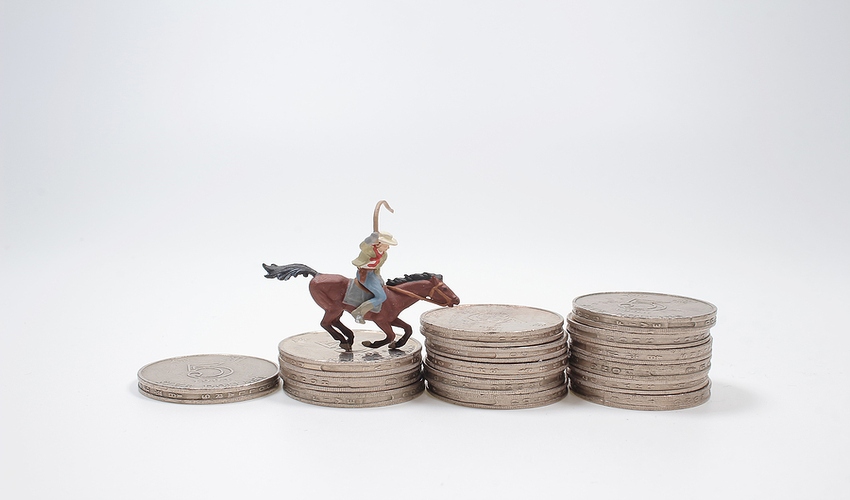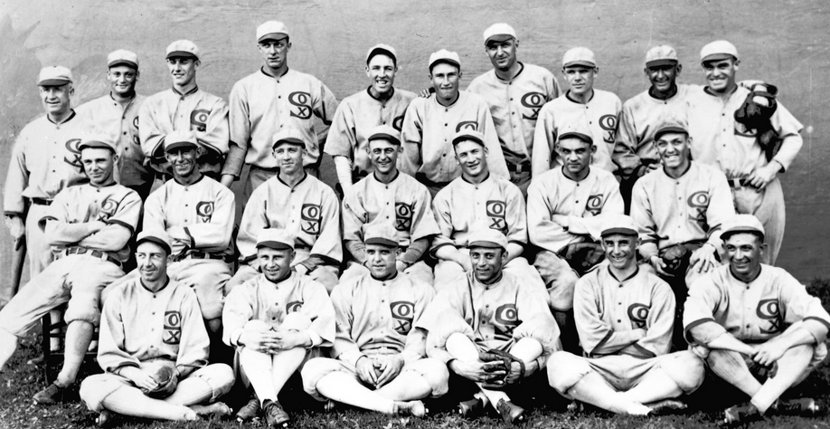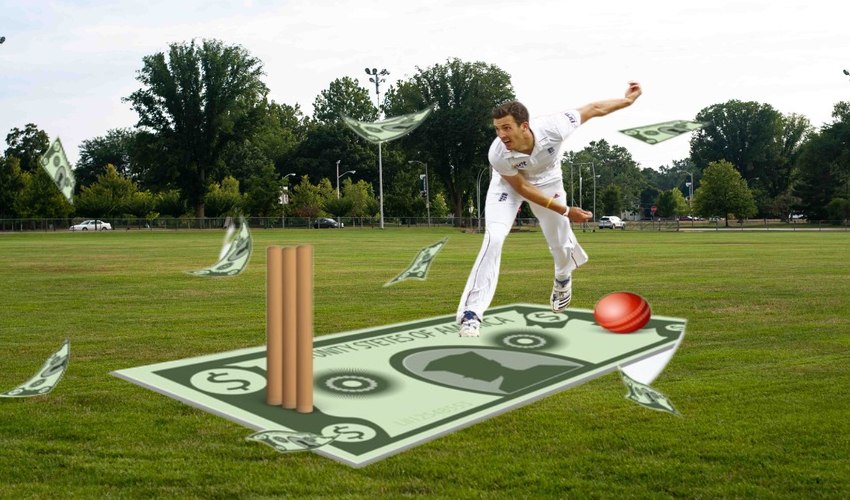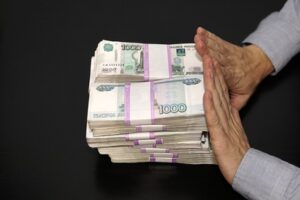 yoThere is something about the challenging of winning a bet that makes it an appealing thing to do. Perhaps it’s because you’re taking on the experts at a game that has a relatively level playing field and can, therefore, get one over on them.
yoThere is something about the challenging of winning a bet that makes it an appealing thing to do. Perhaps it’s because you’re taking on the experts at a game that has a relatively level playing field and can, therefore, get one over on them.
Maybe it’s the competitive nature of sport in general that appeals to a certain type of person, where winning gives them a sense of achievement as well as a financial reward. Ultimately, of course, it might just be about earning a quick buck for a not entirely huge investment on the bettor’s end. Some people revel in the element of chance that takes over when any result is anything other than a dead cert.
Some people, on the other hand, are not at all keen on that lack of certainty. They’d very much prefer it if something could shift the fortune of a given event in their favour. That competitive element that allows us all to enjoy sports betting becomes a bit too competitive and these people veer to unsavoury methods to as good as guarantee themselves a win.
As with folks who would card count in a casino or try to play with rigged die on the Craps tables, they risk losing everything in the hopes of winning it all. The vast majority of punters wouldn’t go anywhere near the world of match fixing, but for some it’s an irresistible lure. We’ll have a look at those people here, exploring some of the biggest cases in the history of sport.
What Is Match Fixing?

As with any conversation, it’s always helpful to ensure we’re all on the same page when it comes to what we’re talking about. There are some things in sports betting that are seen as no-nos by the bookmakers without being out-and-out illegal. Hedging your bets, for example, so that you that you always stand to make a profit. Nowadays this often involves the use of Betting Exchanges, such as Smarkets, to pace a bet on the opposite of what you’ve bet on via a bookie’s sportsbook, allowing you to limit your losses or, when it really works, turning a profit.
Bookmakers don’t like it when bettors do that sort of thing and there are all sorts of rules in their terms and conditions to ensure that you don’t do it. They’re not likely to call the police if you get caught doing it, however. Instead they’ll just suspend your account and ban you from opening any others with them or any sister companies they might have access to. The same thing is true of those of you who might attempt to take advantage of free bet welcome offers or the like by opening numerous accounts.
That sort of thing is relatively small fry. What we’re talking about here are people who collude with or somehow influence the sports stars themselves in order to get them to perform some action or another at a certain time or in some manner that will allow those doing the influence to make money from bookies. The most obvious example, that you’ll likely have seen in countless films or TV shows, is a boxer who is instructed to be ‘knocked out’ in a specific round. People will then bet headily on that happening, earning themselves a decent amount of money when it does.
Famous Examples Of Bet & Match Fixing In Sport
Now that we’ve clarified exactly what we’re talking about, what are some of the biggest and most high-profile examples of sports match fixing that have occurred over the years? Given that betting on sport in general goes back to before records even began, it’s no surprise to learn that the more nefarious side of the industry has been around for that long too.
Whether you’re talking about the Ancient Greeks betting on the Olympics and persuading certain sports stars to throw matches, or chariot races with suspicious results, match fixing has been going on for hundreds of years.
We’ve had a look at some of the best-known examples:
Football

There’s little doubt that association football is one of the most fixed sports in modern history.
It is something that has affected leagues and teams from across the spectrum of countries that play the game, even if people nowadays like to assume that it’s a predominantly Italian problem.
In fact, one of the earliest examples of corruption in the sport occurred in the country of its origin.
1964 – British Betting Scandal
Jimmy Gauld was a former Scottish youth international footballer and first became intrigued by the idea of fixing football matches when he learnt that a former teammate of his at Mansfield Town had been paid to do just that by Tranmere Rovers. He began in 1962, approaching a Sheffield Wednesday player named David Layne who he used to play with at Swindon Town and they began to identify suitable games. Layne believed that Wednesday would lose to Ipswich Town when they played them at the start of December, so he approached fellow Owls players Tony Kay and Peter Swan and the three decided to make sure that that’s what happened.
Gauld and his co-conspirators also ensured the outcome of two other games on that same day: Lincoln City versus Brentford and Oldham Athletic’s game against York City. Numerous games were ‘fixed’ over the following year or so before The Sunday People newspaper eventually broke the story. Numerous players were sent to prison over the incident, all them being banned from football for life upon their release. Gauld sold his story to the same newspaper that had broken it in the first place, earning himself £7000 for it. It’s estimated that he made himself around £3500 in prize money from the fixed matches, meaning that all told he would have earned about £200,000 in today’s money.
1980 – Italian Football Fixing Scandal
More recent allegations against Italians might rule the news cycle when it comes to fixing football matches, but the truth is unsavoury events have happened in Italy before. Known as ‘Totonero’, it was uncovered by the Guardia di Finanza, or financial guard, and involved teams from both Serie A and Serie B. It was revealed after two shopkeepers in Rome named Alvaro Trinca and Massimo Cruciani revealed that players were selling football matches for money.
What was perhaps most shocking about the revelations was the fact that it involved such high-profile clubs, with the likes of AC Milan, Lazio and Bologna all caught up in it. Managers and players were banned for differing periods depending on their involvement once it had come to light, with the football clubs themselves mostly being relegated down a division in the Italian football league. One of the things that they did was pick favourable referees for certain fixtures, a theme that would return in a later Italian match fixing scandal.
2005 – Bundesliga Scandal
In the first few months of 2005 it was discovered that a referee named Robert Hoyzer had been fixing and betting on matches in the 2. Bundesliga, the DFB-Pokal, and the Regionalliga, which was the German third division. The scandal didn’t reach as high as the Bundesliga, but it was believed to have touched on the DFB Pokal match between Paderborn and the top-flight side Hamburg. Paderborn, an unfenced regional team, were awarded two highly dubious penalties and Hamburg had a man sent-off, with the Bundesliga team losing 4-2.
The incident came about because four different referees went to inform the DFB of their suspicions. The German football federation didn’t initially do anything, but eventually Hoyzer stepped down. It’s believed that he was regularly attending meetings with three brothers who were part of a Croatian gambling syndicate with strong connections to organised crime. Hoyzer was jailed and banned from football for life, despite aiding prosecutors and informing them of other referees and some players involved in the fixing of matches.
2006 – Second Italian Match Fixing Scandal
Known in Italy as Calciopoli, the second major match fixing scandal to rock Italian football was uncovered by Italian police who made a number of illegal telephone interceptions. It involved a wide-ranging network of corruption involving club managers and the Italian referee’s organisation, following the lead of the 1980 scandal by ensuring favourable referees were put in charge of selected matches.
Once again it was the level of the clubs involved that caused the most shock, with Juventus, AC Milan, Fiorentina and Lazio all involved. Juventus were actually stripped of their title for the 2004-2005 and 2005-2006 league campaigns and relegated to Serie B. Other clubs escaped such a harsh punishment, with the likes of AC Milan and Fiorentina given a points deduction and forced to play games behind closed doors. Remarkably, not all of the players, managers and referees involved were banned from the game for life as you might expect, with some simply given a warning or a fine.
Horse Racing

Of all the sports that can be and has been fixed, horse racing is arguably one of the most difficult. Unlike football, cricket and similar sports that you’ll find on this list, there’s more than just a human element in horse racing.
To be able to fix an event involving numerous competitors and animals that have their own minds takes a lot of effort, coordination and forethought. In the following examples you’ll see exactly why that’s the case and how an industry worth approximately £12 billion every year reacted to the scandals that have hit it over the years.
1953 – Francasal
The first horse racing scandal that we’re going to tell you about took place on the 16th of July in 1953, though the preparation to pull it off began well before then. The scam involved an unknown and unfancied French horse by the name of Francasal (top image right), which was scheduled to run in the Spa Selling Hurdle Plate that was taking place at Bath Racecourse. The reason that this turned out to be bad for bookmakers was that Francasal didn’t run in the race, having been replaced by a significantly better, more experienced and faster horse named Santa Amaro (top image left).
The man behind the scheme was Gomer Charles and he had a group of co-conspirators in place around the country where would place large bets on Francasal. Back then there were no mobile phones, so bookies communicated with the on-course pitch via telephone. The issue the conspirators had was that a series of large bets would see the odds on Francasal tumble down, thereby limiting how much profit they would be able to make. In order to avoid that happening, they got someone to cut the phone line to the track. This stopped off-course bookies being able to communicate with the on-course ones, resulting in the odds staying quite high.
Santa Amaro, racing as its fellow French and similar looking horse Francasal, won the Selling Hurdle Plate with ease and at odds of 10/1. The fact that the various bookies were unable to communicate with each other made them suspicious, however, and they refused to payout on the bets. In the end the deception was discovered and both Gomer Charles and his fellow conspirators were issued with jail sentences. Years later two burglars attempted to rob Charles in his home and shot him dead.
1974 – Gay Future
Whether or not the men behind the Gay Future scandal of 1974 knew about Gomer Charles and his gang’s attempts to win big twenty-one years before is unknown, but it seems likely when you consider that they attempted to pull off a much more convoluted version of a similar scheme. Theirs also involved a pair of horses that looked very much alike, though the two horses had extremely different ability levels. Gay Future was an incredibly talented horse that had been trained with the specific aim of winning a race at Cartmel Racecourse in the Lake District. It was kept in a horse box close to the course on the day of the race, whilst the similar looking but far less talented horse was watched by the bookmakers and given little chance of success.
On the day of the race the two horses were swapped, meaning that the talented Gay Future could run in the race that it had spent months preparing for. Rather than placing bets on Gay Future alone and therefore both drawing suspicion and lowering its odds, the gang behind the scam, led by a man named Tony Murphy, placed bets on three horses all trained by Tony Collins. Owing to the way such bets worked, they knew that if the other two horses didn’t run then their bets on them would be moved over onto the only Tony Collins horse to run that day, which was Gay Future. Obviously there was no question as to whether or not these horses would run – they never even left the training centre.
This audacious scheme would almost certainly have worked and earned all involved a large amount of money, but for a piece of extraordinary fortune on the part of bookmakers and the racing authorities. A journalist happened to called Tony Collins’s training centre and ended up speaking to a stable hand. Obviously he wasn’t trusted to be included on the scam, so the stable hand didn’t think twice before informing the journalist that the two horses hadn’t even left the place that day. The journalist informed the authorities and the whole plan fell apart. However, it was that impressive a scheme that it earned admiration, eventually being made into a film starring Pierce Brosnan called Murphy’s Stroke.
1982 – Flockton Grey
Horse races are difficult to fix, given the number of variables involved. That’s why virtually all of the examples involve using horse that look alike. That’s also the case with one of the British horse racings largest ever scandals, which took place at Leicester Racecourse on the 29th of March in 1982. An undistinguished gelding from a yard that had failed to train a winner in two years worth of racing, Flockton Grey was entered into a race for two-year-olds at the Leicestershire course and given odds of 10/1. His trainer, Stephen Wiles, and owner, Ken Richardson, placed bets of up to £20,000 with numerous different bookmakers around the country.
On the day of the weight-for-age race they swapped Flockton Grey out for another horse named Good Hand. This was a three-year-old that should have been carrying an additional forty-seven pounds more than the horses a year his junior. Because the officials in Leicester believed it to be two-year-old Flockton Grey, however, he did and ran home twenty lengths clear of his nearest competitor. Perhaps if the horse had won by less the suspicion of bookies wouldn’t have been uncovered, but it did and it was, leading to bookmakers refusing to payout. Race photographs showed that ‘Flockton Grey’ had teeth too developed for a two-year-old and the on-course vet noticed that the winning horse had a scar on one of its legs.
Investigators into the affair soon discovered that Flockton Grey was trained by Stephen Wiles and used blood tests to determine the horse’s identity. When no scar was found on his leg, the scheme was uncovered and Richardson was later given a fine and suspended jail sentence. Both Richardson and Wiles were given lengthy bans from racing by the Jockey Club, with the former returning to sport many years later as the chairman of Bridlington Town Football Club and a ‘benefactor’ of Doncaster Rovers. He was later jailed for attempted arson after hiring three people to burn down Doncaster Rovers’s stadium in an attempt to claim the insurance payout.
2002 – Pick Six Fraud
Not all horse racing scandals involve betting on horses to win. In the case of the Pick Six Fraud Case of 2002, the bettors could have had a wager on whatever horses they wanted as the ‘fixing’ involved was far more technical. It took place in America and involved a man named Chris Harn, who worked as a computer programmer for the betting company Autotote. They looked after the bets of around 65% of all wagers placed on horse racing in North America, with Harn having access to all of the information about those races through his job. In 2001 he realised that he could see all of the information about unclaimed tickets and was also able to re-print the tickets in order to claim the winnings.
Because Harn was forbidden from placing bets as part of his job and would have been known at the tracks anyway, he enlisted the help of two friends of his called Derrick Davis and Glen DaSilva. Harn re-printed the winning tickets and his friends went along to tracks to cash them in, but the trio soon realised that they wouldn’t be able to keep doing it for too long without being discovered. Harn came up with a plan to take advantage of the biggest day of American racing, known as the Breeders’ Cup. On that day bookmakers offered punters a chance to win big by predicting the winners of the Classic, Turf, Sprint, Distaff, Juvenile and Mile races – the ‘Big Six’ on a coupon called the Ultra Pick 6.
Wagers placed off-track that were still live after Race Two of the Pick 4 ticket and after Race Four of the Pick 6 were forwarded on to Autotote’s headquarters, with Harn spotting that there was a delay between the end of the race and the results being registered on the system. As a ‘super user’ he could manipulate the system and did just that, turning his friend Davis’s bets into a winning ticket. The trio managed to turn a $1,152 bet into almost $3.1 million. The problems for them arose when the winner of the last race ended top being a 43/1 shot that virtually no one had bet on. That meant that Davis’s Ultra Pick 6 ticket was the only winning one, which caused suspicion with the authorities. In the end, Harn was sentenced to just over a year in prison, whilst Davis received 37 months and DaSilva got two years.
2010-2011 – Andrew Heffernan Case
In the final case that we’ll tell you about, you’ll see that the invention and subsequent proliferation of betting exchanges allow punters to bet on horses losing races by ‘laying’ them, or betting on the rest of the field instead, rather than just winning. That’s something that proved to be too much for Andrew Heffernan, Michael Chopra, James Coppinger and six other conspirators to resist back in 2010-2011. Heffernan was a jockey who gave the two men, both footballers, and others some insider information in order to allow them to place big bets on horses to lose their races.
The British Horse Racing Authority conducted a large investigation into the matter and eventually charged Heffernan over three specific races. These were the riding of Wanchai Whisper at Lingfield on the 28th of January 2011, Gallantry on the 2nd of February 2011 at Kempton and Silver Guest back at Lingfield on the 9th of February the same year. He told his co-conspirators to bet against those horses winning their races and then rode them in such a way to prevent them from being victorious. The case resulted in bans that added up to seventy years worth in being dished out to those involved in the elaborate network of corruption.
Baseball

1919 – Black Sox Scandal
Perhaps the most famous corruption scandal in American sporting history, the Black Sox Scandal involved eight members of the Chicago White Sox baseball team. They were paid money by a gambling syndicate to lose their World Series match against the Cincinnati Reds. Such was the shock and horror at the scandal, it changed the nature of baseball forever. In the wake of its being uncovered, a new position of Commissioner of Baseball was formed and awarded to Judge Kenesaw Mountain Landis, who was tasked with helping the sport regain its integrity.
Though the predominant reason for the White Sox players throwing the game was financially motivated, there was a certain amount of stuff going on behind the scenes that wouldn’t exactly have put them off. The owner of the club, Charles Comiskey, was widely disliked and believed to be quite miserly. There was a clause in baseball at the time known as the ‘reserve clause’, which banned players from playing for another team without the owner’s permission. It was relatively easy, therefore, for the racketeer Arnold Rothstein to find disgruntled players willing to accept money in return for influencing the outcome of games.
Cricket

If association football is one of the biggest sports to suffer from match fixing scandals then cricket can’t be far behind. Both sports are heavily bet on by the Asian markets, which are notorious for attempting to fix matches. In fact, it’s believed that some of Asia’s biggest match fixers turned to sports in America and Europe precisely because they had decimated the sports in their own countries and made them as good as entirely corrupt.
2000 – Hansie Cronje
The South African cricketer Hansie Cronje was voted to be the country’s eleventh best cricketer of all time in 2004, despite the fact that four years earlier he had been banned from the sport for life for fixing matches. The incident come to light after police in Delhi intercepted a telephone conversation between Cronje and a blacklisted Indian bookmaker. The phone called revealed that the South Africa cricket captain had accepted money in order to throw cricket matches. The situation wasn’t helped by South Africa’s government refusing to allow any of the country’s cricketers to talk to Indian investigators over the issue.
Regardless of South Africa’s lack of willingness to engage in any investigation and the fact that Cronje confirmed that Pakistan’s Saleem Malik, and India’s Mohammed Azharuddin and Ajay Jadeja were also involved, he was still given a ban for life from playing cricket. Perhaps because of South Africa’s reluctance to participate in any inquiry, the full information about the scandal wasn’t revealed until Indian police registered their investigation into events in the year 2013. Cronje himself died in a plane crash in 2002. The crash was blamed on the pilots, but numerous rumours remain that he was murdered in order to stop him from revealing too much about the match fixing scandal.
2010 – Pakistani Cricket Spot-Fixing Scandal
In 2010 the Pakistani cricket team was in England for a series of tests against the home nation. After an undercover operation by journalists from the News of the World newspaper, it was revealed that bookmaker Mazhar Majeed had accepted money in return for information about when Pakistan’s bowlers, Mohammad Asif and Mohammad Amir, would bowl ‘no balls’ in the match at Lord’s.
The Pakistan team captain Salman Butt was also implicated in the spot-fixing and in November of 2011 Butt, along with Asif and Amir, were banned from the sport by the International Cricket Council. The three players along with Majeed were all given prison sentences by a London court on criminal charges of spot-fixing, serving sentences of between six and thirty-two months. The investigation also spilled over into other sports, with Majeed having bought Croydon Athletic Football Club with the specific intention of using it for money laundering purposed.
2018 Australian Ball Tampering Scandal
In March 2018 footage emerged showing Australian bowler Cameron Bancroft using sandpaper to change the condition of the ball in a test against South Africa. TV pictures on the big screen in the ground showed Bancroft using an object on the ball, leading him to hide it down his trousers. After initially suggesting yellow tape had been used an investigation revealed both he and Australia captain Steve Smith in fact used sandpaper to alter the ball condition.
The fixing seemingly had nothing to do with making money from betting, rather it was solely a ploy to gain an advantage in the game. The bizarre aspect here being Australia at the time were one of the best, if not the best, team in the world, which begs the question why?
The fixing occurred on day 3 of the test and both players along with vice captain David Warner did not play the remainder of the game. From a decent position on day 3 the Aussies subsequently collapsed in uncharacteristic fashion leading to South Africa winning. While the ball tampering itself was not aimed at making any money for the players it no doubt affected a lot of wagers from punters around the world, who may not have made those bets had they known. All three players received bans and head coach Darren Lehmann subsequently stepped down from his role.
2022 Fake IPL
The IPL being the richest cricket tournament there is and one of the biggest across any sport you would suspect it would be hard to dupe punters into betting on a fake IPL event. That is, however, exactly what the architect of this scheme, Shoeb Davda, did to Russian bettors in 2022.
Having spent time in Russian pubs known for taking bets he was able to craft a plan by where unemployed people and labourers from Molipur village in Gujarat (India) played out an entire fake tournament that was then live streamed on you tube for Russian gamblers to bet on. The umpires would communicate using walkie talkies and pass on to the bowlers and batsmen what should happen for the next ball, depending on how bets were placed. Bowlers would, for example, bowl a slower ball when 4’s or 6’s were required.
Despite the tournament being played after the end of the official IPL bettors fell for it in their thousands and were largely left out of pocket. So well designed was the con that the tournament continued to the quarter-finals before it was eventually stopped by the police.
Not so much an example of match fixing bur rather fixing an entire tournament of matches and the fact it was only a few matches from the end when busted is even more astounding.
Esports

It’s not just the classical sports that have been caught up in scandals over the years. As more and more non-traditional sports can be bet on, so the chance of match fixing occurring in them will increase. Two such examples exist in the ever-increasing world of Esports.
2010 – Starcraft Scandal
In 2010 a number of Starcraft players, who were considered professionals in the game, were believed to be guilty of fixing matches. Seven gamers were investigated and two arrests were made, whilst well-known players By.CrocuS and Ma Jae-Yoon were revealed to be the brokers between the corrupt gamers and the bettors.
2015 – iBuyPower and NetcodeGuides Match Fixing Scandal
Whilst iBuyPower and NetCodeGuides might sound like major corporations, they are in fact the names of two Counter-Strike Global Offensive team names. They went up against each other during the CEVO Professional Season 5 tournament in August of 2014, with iBuyPower expected to win quite comfortably. Instead they lost 16-4 following a match filled with bizarre strategic decisions. As a result of the scandal six iBuyPower players and the owner of NetCodeGuides were banned from future tournaments sponsored by Valve.
Other Sports Match Fixing Incidents
Given that the combination of sport and betting is one of the most lucrative in the world, it’s no surprise to learn that countless other incidents have occurred over the years. The ones we’ve labelled here and the best-known or most interesting, but they aren’t even close to being the only ones.
In 2016, for example, an investigation by Buzzfeed and the BBC revealed that Northern Italian, Russian and Sicilian betting syndicates had been fixing matches in tennis, including at such major tournaments as Wimbledon.
Are Some Sports Easier To Fix Than Others?
 If you’re a regular punter then all of this talk about match fixing might have you slightly concerned. Are the bets that you’re placing all fair game? Should you be concerned about betting on one sport over another? The reality, of course, is that most people place bets that won’t be majorly affected by the outcome of a fixed match. More often than not nowadays the criminal element involved in match fixing don’t target the overall result, but rather specific elements of it. If you’re betting on the number of fouls committed in a rugby match then you’re likely to be betting on something approaching a coin toss anyway.
If you’re a regular punter then all of this talk about match fixing might have you slightly concerned. Are the bets that you’re placing all fair game? Should you be concerned about betting on one sport over another? The reality, of course, is that most people place bets that won’t be majorly affected by the outcome of a fixed match. More often than not nowadays the criminal element involved in match fixing don’t target the overall result, but rather specific elements of it. If you’re betting on the number of fouls committed in a rugby match then you’re likely to be betting on something approaching a coin toss anyway.
Matches with the most moving parts are likely to be the ones most susceptible to match fixing issues in the coming years. Syndicates are keen to bet on incidental moments within a game that will likely have high odds, rather than the over-arching result or outcome. That will also be an easier thing for players dictate, especially in team sports. There’s a reason why the likes of football and cricket are the sports most commonly fixed, with that reason being there are so many moving parts and so many things that you can bet on that it’s significantly harder for authorities to identify things being fixed.
In terms of fixing an actual match result the sports most susceptible are individual sports. Tennis is the perhaps the worst of all as a player can throw a match, set or game quite easily and put it down to bad form, it is also difficult to prove any fixing even if suspected. Tennis is more open to fixing than say Formula One because low level competitors don’t earn much money but can make it to big competitions, and can therefore be swayed to throw results where an F1 driver earning millions never could.
What Happens to your Bet If Match Fixing Is Suspected?
 Bookmakers and betting sites are very good at spotting suspicious betting activities. Bookies know roughly what type of activity a typical sport or market should encourage and they have software and algorithms that monitor those markets. If suddenly someone puts £10,000 on a line that would usually attract average bets of £10’s of pounds then alarm bells will, quite literally, ring.
Bookmakers and betting sites are very good at spotting suspicious betting activities. Bookies know roughly what type of activity a typical sport or market should encourage and they have software and algorithms that monitor those markets. If suddenly someone puts £10,000 on a line that would usually attract average bets of £10’s of pounds then alarm bells will, quite literally, ring.
If ‘suspicious betting activity’ is spotted before an event starts what tends to happen is the site will suspend that betting market while they investigate. Bookmakers do share some information too and so even if suspicious bets have been placed elsewhere your specific bookie may still suspend the market. This doesn’t mean your bets are not valid any more, only that they are investigating.
The burden of proof is on the bookmaker and so don’t think you will lose your money at this point. What will most likely happen is the site will void all bets on that market before the event starts.
Generally if bet fixing is suspected before a bet has actually paid out the bookie will hold those funds (both stakes and payouts) until an official investigation is complete. If the bookie has already paid out and match fixing is suspected then there is little they can do, unless they suspect you directly in which case of course you could be referred to the police.
There are many reasons why bookmakers refuse to pay out, most are nothing to do with suspected match fixing.
Match and Bet Fixing In The Future
 From tennis through to Formula 1, via NASCAR and boxing, there’s barely a sport that hasn’t been touched by match fixing suspicions at one point or another. Perhaps the most intriguing question of all is what will happen to this particular, nefarious method of betting in the future. Will it die out all together or will it become more and more rife?
From tennis through to Formula 1, via NASCAR and boxing, there’s barely a sport that hasn’t been touched by match fixing suspicions at one point or another. Perhaps the most intriguing question of all is what will happen to this particular, nefarious method of betting in the future. Will it die out all together or will it become more and more rife?
As mentioned before, corruption in sport has been around for as long as sports themselves have been. The hope, therefore, that match fixing will become less common in the future seems to be a naïve one. Rather, it is likely that match fixing will become more subtle, the perpetrators getting more intelligent as time goes by and they learn how to get away with things more readily.
The development of the likes of In-Play betting certainly makes things more interesting for the every day punter, but it also makes it much easier to fix certain aspects of betting. After all, who would be suspicious of the number of throw-ins conceded or the number of corners given away in a football match? Even the best tennis players in the world serve double-faults from time-to-time, so would officials really start to suspect something if a player of lesser ability committed a certain number within a game?
The more betting options we have open to us, the more fun we have as bettors. The issue that bookmakers have to find a way of dealing with is that this also plays right into the hands of those who would use pre-gained knowledge to place bets and make money through the fixing of matches. There will always be a criminal element involved in the world of sport, that is undeniable. The question really is whether the authorities can develop their networks and their monitoring systems to discover enough information about them to stop them from blighting the game.
There is also the fact that the anonymity of the internet makes it much easier for the criminal element out there to bet on things without being discovered. In-Play betting obviously aids them, but not as much as the fact that they don’t even need to show their faces to place a bet. It will be genuinely interesting to see what both the authorities and the bookmakers themselves do to combat this growing issue in the future.
Will we start to see company’s asking for photographic ID for online users? Will governments begin to issue gambling identification cards for those would like to bet over a certain amount of money? Certainly it is likely that online bookies will try to find ways to crack down on those that would win bets illegally, but how they do it and whether they will succeed remains to be seen.